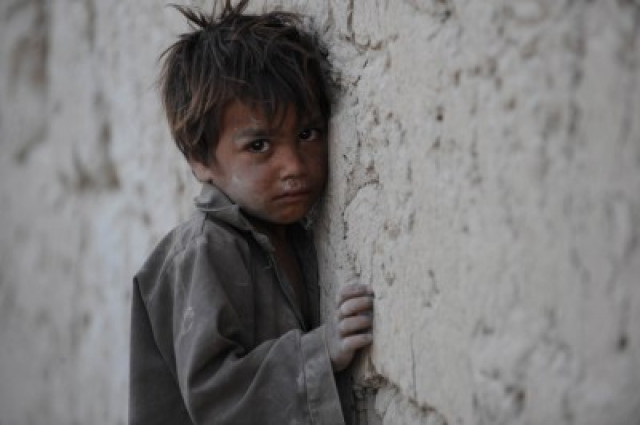Overcoming malnutrition: All efforts may spiral down to zero again
In Pakistan almost half of the children under the age of five are chronically malnourished.

Pakistan cannot address the malnutrition issue without enabling people to improve their lifestyle by overcoming hygiene and sanitation, poverty and inequity issues. PHOTO: FILE
Health experts while discussing the alarmingly high level of malnutrition in Pakistan have expressed fear that the country will not be able to overcome the issue in near future.
They were speaking at a press conference organised by the World Health Organisation (WHO) in collaboration with the Planning Commission of Pakistan at a local hotel on Thursday.
“Pakistan needs a holistic and multi-sectoral approach to address the malnutrition issue rather than shifting the entire the responsibility on one sector to cope with it,” they said.
Director of Health Protection and Promotion, WHO Regional Office for the Eastern Mediterranean of Egypt Dr Haifa Madi said that Pakistan cannot address the malnutrition issue without enabling people to improve their lifestyle by overcoming hygiene and sanitation, poverty and inequity issues.
She said that the current challenge was how to formulate a mechanism that not only address the immediate effects of malnutrition but also make sustainable progress within the most vulnerable communities.
Senior Chief Nutrition at the Planning Commission of Pakistan, Dr Mohammad Ayub, said that if root causes of malnutrition were not addressed, all efforts will spiral down to zero again.
“There is a need to improve exclusive breast feeding practices in the country. People should be aware of balanced diet and they should have access to healthy food products, improved hygiene and sanitation conditions and a check on child marriages and frequent pregnancies,” he said
World Food Programme (WFP) representative, Mona Sheikh, said, “The Pakistani government should consider the amount spent on improving nutrition status as an investment and not expenditure.”
She said that due to the inflation people were unable to afford basic food items such as eggs, fruits, milk etc, which were necessary for physical and mental growth of children.
“In Pakistan almost half of the children under the age of five are chronically malnourished,” she said.
“There is a need to raise awareness among people about the importance of nutritious food. Many children from the well-off families are malnourished because they consume more junk food which is not a healthy diet,” she said.
“There is a need to decrease the consumption of tea as it hinders iron absorption in the body which later results in anemia,” Sheikh said.
The health experts also said that emergency responses were needed to be taken to ensure food supplements, healthcare facilities, shelter, clean drinking water and subsides to the most vulnerable and affected communities.
Published in The Express Tribune, April 26th, 2013.


















COMMENTS
Comments are moderated and generally will be posted if they are on-topic and not abusive.
For more information, please see our Comments FAQ